Missed Opportunity: Korn Ferry Futurestep Survey Finds Talent Acquisition Professionals Not Taking Advantage of Tools, Technology and Business Strategy
--Only 39 Percent Say Their Recruiting and Business Objectives Are Aligned –
-- Nearly Three-Quarters Don’t Use Mobile Recruiting Tools --
-- Less than Half Use Video Recruiting or Online Assessment Tools --
LOS ANGELES--(BUSINESS WIRE)-- A new global study by the Futurestep division of Korn Ferry (NYSE:KFY) highlights the missed opportunity of not mapping talent acquisition efforts to business strategy and not using tools that help make the talent acquisition process streamlined and more efficient.
Editor’s Note: Full Report and Infographic Available
In Part Two of Talent Forecast Futurestep’s global survey of more than 1,100 hiring professionals, only 39 percent of respondents report that their recruitment team is aligned to their organization’s business objectives, and nearly one-third (29 percent) admit they don’t have a strategic workforce plan, which helps them map future talent needs to business strategy.
“When talent strategy and business strategy are not aligned, talent acquisition becomes tactical and ineffective,” said Sue Campbell, managing director, Asia, Korn Ferry Futurestep. “To successfully implement strategies such as M&A or organic growth, it’s critical for organizational and talent management leaders to step back and analyze the types of talent they need, what talent they have, and how to fill the gaps.”
When talent acquisition professionals were asked what they would focus on if they could spend more time with their recruitment teams, 39 percent said being a stronger partner with the business/hiring manager.
“It’s critical that talent professionals work closely with the company’s business and hiring managers to define and communicate the employer value proposition - why a candidate would choose their organization over a competitor,” said Bill Gilbert, Korn Ferry Futurestep president, North America. “In addition, talent professionals should be able to use data to inform business/hiring managers on the size of a talent pool, compensation levels, and provide a competitive analysis of other organizations targeting the same candidates.”
Not Keeping Pace with Technology and Modern-Day Candidate Preferences
Many talent acquisition professionals are not fully utilizing available technology to engage and assess candidates.
For example, only 28 percent of respondents report using mobile technology tools for recruitment.
“While the use of mobile technology in recruiting will undoubtedly increase in coming years, talent acquisition professionals should move quickly in this area to best capture candidates’ attention, particularly those in the millennial generation who are perpetually connected to their mobile devices,” said Gilbert.
In addition, only 46 percent say they use video interviewing or online assessment tools, and of those who do use online assessment tools for selection purposes, 26 percent don’t use the data to inform onboarding or development strategies.
“The right kind of assessment tools help hiring managers understand not only what a candidate can do through competencies and experiences, but who they are through drivers and traits,” said Gilbert. “This helps select candidates who are a right cultural fit for an organization, and can also help with customized onboarding and development plans.”
Using RPO Partners to the Full Potential
Finally, the report sheds light on the use of recruitment process outsourcing (RPO) partners. The top two ways respondents say they work with RPO partners is sourcing (88 percent) and screening (74 percent) candidates. Relatively few organizations use other services that RPOs offer, such as employer branding, building talent communities, or creating metrics for reporting and decision making.
Only 48 percent of survey respondents said they use applicant tracking systems for recruitment purposes, a surprisingly low number given that ATS is generally needed for regulatory compliance.
“RPO firms can be particularly valuable in bringing technology and innovation to bear on the recruitment process, but many organizations are using them strictly as tactical recruiting machines,” said Jan Mueller, managing director talent acquisition solutions, EMEA, Korn Ferry Futurestep. “RPOs can provide quantitative information about the target talent pool, compensation, and social channel behaviors, and at the back end, they can produce data on conversion rates, time-to-hire, qualified candidates per hire, and interviews per hire -- all of which are helpful in developing a more professional talent acquisition process.”
About the Study/Report
Talent Forecast is a three-part global series by Futurestep. It contains survey data from responses garnered during a global survey of more than 1,100 talent acquisition and human resource professionals across several industries. The study was conducted in late 2016.
About Korn Ferry
Korn Ferry is the preeminent global people and organizational advisory firm. We help leaders, organizations and societies succeed by releasing the full power and potential of people. Our nearly 7,000 colleagues deliver services through our Executive Search, Hay Group and Futurestep divisions. Visit kornferry.com for more information.
More information on Futurestep can be found at kornferry.com/futurestep.
View source version on businesswire.com: http://www.businesswire.com/news/home/20170308005659/en/
Korn Ferry
Tracy Kurschner, 1-612-309-3957
Tracy.Kurschner@KornFerry.com
Source: Korn Ferry
Released March 8, 2017


